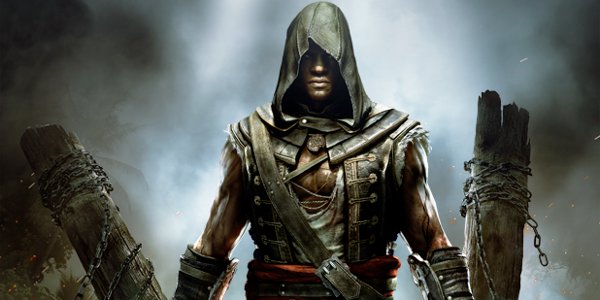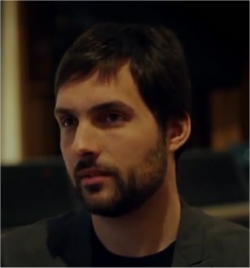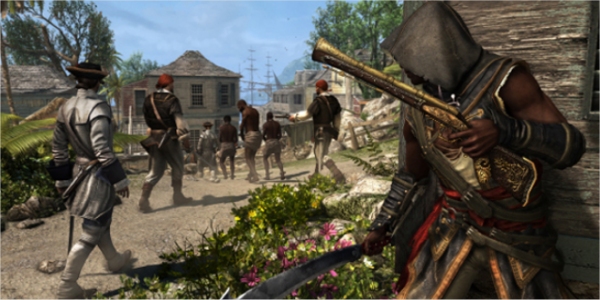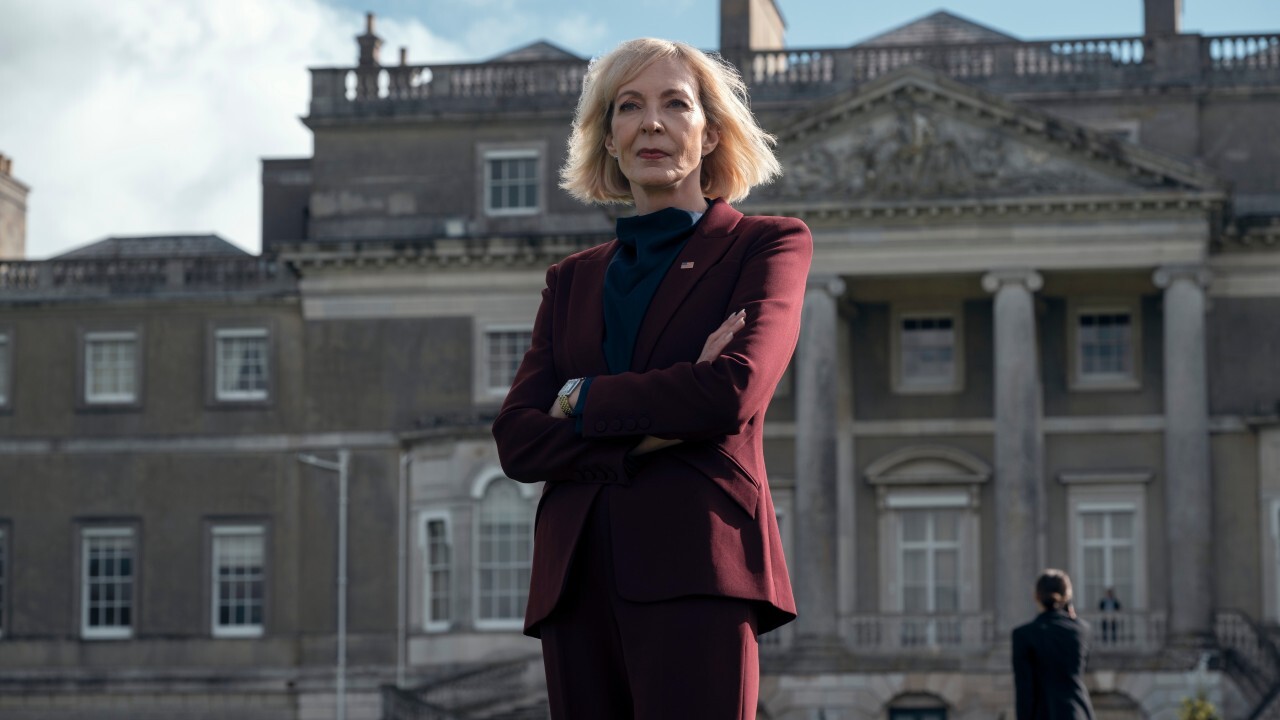Assassin's Creed 4 Interview: Olivier Deriviere Talks Freedom Cry

Assassin's Creed IV: Black Flag Freedom Cry DLC expansion has officially launched today. Keeping in good timing with this new piece of playable content, we were given the opportunity to interview the composer for the DLC's soundtrack, Olivier Deriviere.
The classically trained composer has worked with and recorded music with a number of different prestigious symphonic orchestras and has taken his talents to Ubisoft's bread-and-butter abode in the Assassin's Creed franchise. With the opportunity to pick the brain of Deriviere, we find out how he came up with the original score and what fueled his passion to make it tick. Check it out below.
Gaming Blend: So how did you get attached to the project and did you have any previous working experience with Ubisoft titles or properties before going in?
Olivier Deriviere: It happened so fast. I remember I was working on several opportunities and I received this phone call from my manager saying that Ubisoft called and offered me a project that she said, “I couldn’t say no to”. I really was intrigued as they told me it was about their main brand and that they wanted me because I would bring a different feel to it. How could I say no to that? Before that I had some limited experience working with Ubisoft years ago for Heroes of Might and Magic Kingdoms and some third party games.
Gaming Blend: You were able to work with The Brussels Philharmonic who did their recording in Belgium, while also collaborating with La Troupe Makandal, who were recording at Avatar Studios in New York, while also dealing with Ubisoft's Montreal studio – what was that process like trying to compose music while dealing with so many different groups scattered around the world?

Deriviere: It may have been the most challenging music production I have faced so far. Everything happened in about 2 months. It started with my first meeting with the team in Quebec City to introduce me to the game. We talked and it became obvious that the score should include a traditional music feel to it, not as a background idea but as a true component.
I had to record the traditional music first because I wanted it to be the rhythmic foundation of my score. Then for about 4 weeks I wrote the orchestral music, which is quite complex and I knew we would need a great orchestra to perform the hard rhythmic parts. Thankfully I had the great opportunity to work with The Brussels Philharmonic, and to record them at Galaxy Studios in Belgium was a real treat. It was really intense but I think the energy that is in the final score is a reflection of the intensity of this music production. On a different emotional level, what was really moving was to gather the two cultures once again 300 years later and unite them.
Your Daily Blend of Entertainment News
Gaming Blend: It's not often we get to hear traditional Haitian music in video games. In fact, I can't name one game where I've heard that kind of music before. Was it your decision to dig deep into Haitian roots and work with La Troupe Makandal or did someone recommend them or was it a decision handed down from Ubisoft?
Deriviere: Haitian music takes its roots because of slavery; it was a way for protestation and solidarity so it felt completely natural to me to include this music as the real score, not just as an illustration. But what is really interesting is how the music progresses in the game. You start with a much more western feel and the more you play, the more the music becomes influenced by the Haitian music. This progression is a reflection of what happens to the main character, Adéwalé who becomes increasingly affected by his forgotten roots. We even chose to add the original recording of the Haitian songs in their purest acoustic form, with drums and choir, to further immerse the players in this culture in the final credits of the game.

Gaming Blend: Was there a lot of research involved with the history of Haitian slavery, customs and culture before sculpting the music, or did you come up with something in the moment – more-so tuned around what was present in the Assassin's Creed lore?
Deriviere: My idea was to be very respectful and to compose my score on top of the traditional Haitian drum patterns and songs, so it was important to be authentic with their music of that time period. I was very lucky to have contact with Lois Wilcken, musicologist and the executive director of “La Troupe Makandal”. Because of her book “The Drums of Voodoo”, I thought she could be of great assistance for me but after discussing with her I realized she could bring much more. She gathered the group and chose the songs that were truly accurate historically speaking. I didn’t want to give too many directions for their performance as I really wanted to be respectful of their culture, and I think the result is one of the best recordings you might hear of traditional Haitian songs.
Gaming Blend: Some game composers have mentioned that they had to go outside of the box to create instruments to achieve a certain sound. Was that required for the Freedom Cry soundtrack?
Deriviere: Depending on the game you work on, you may have the opportunity to create a unique soundscape. I think this is really important to do so because it brings colors that will give a unique touch to the game. I’ve worked on many diverse projects and each of them has a very unique sound. It is the same for Assassin’s Creed IV Black Flag - Freedom Cry. To produce the traditional Haitian songs was an important starting point. However, combining the songs with the addition of a 40-piece string orchestra that will not only complement but follow their patterns, is what makes this soundtrack completely unique.
Gaming Blend: Originally Brian Tyler did the score for Assassin's Creed IV, but you were given an opportunity to work with Freedom Cry – did you use any of Tyler's work from the original Black Flag as a sound base in which to craft or mold the sounds for Freedom Cry?
Deriviere: I can’t wait to play ACIV but I’m waiting for my PlayStation 4! Freedom Cry takes place fifteen years later and it is not about piracy but slavery. Adéwalé is an assassin but this game tells a different story, a story of a man who witnesses his people’s struggles, whose mind is gradually called to his roots again to realize he can try to help, yet he knows he can’t save every slave.
Gaming Blend: Do you have a favorite or specific gameplay segment and music moment from the Freedom Cry expansion where you feel things just synch together perfectly?
Deriviere: One of the ideas we wanted to explore with Music Supervisor Christian Pacaud was to add some group singing in the plantations while Adéwalé tries to free them. If he is spotted, the music starts with an action feel, and as he fights the oppressors the score progressively ramps up to an extent that the song (which was first heard in the field) is now featured in the actual score of the game with the slaves singing it. This is one of the multiple techniques we used to express the influence of Adéwalé's roots coming back to him...and to the players.
Gaming Blend: Will you be doing any of the music for additional expansion packs for Assassin's Creed IV... or potentially the soundtrack for Assassin's Creed V?
Deriviere: I guess you would have to ask Ubisoft. I have been very honored to be part of this franchise and I would be glad to continue writing music for Assassin’s Creed; I feel every iteration can be very unique in its musical approach and this is what I really like to do!
Our thanks to Olivier Deriviere for answering the questions. We'll keep you posted on when the Freedom Cry soundtrack will become available as soon as Ubisoft announces it. For more info feel free to visit the Deriviere's official website.
Staff Writer at CinemaBlend.

